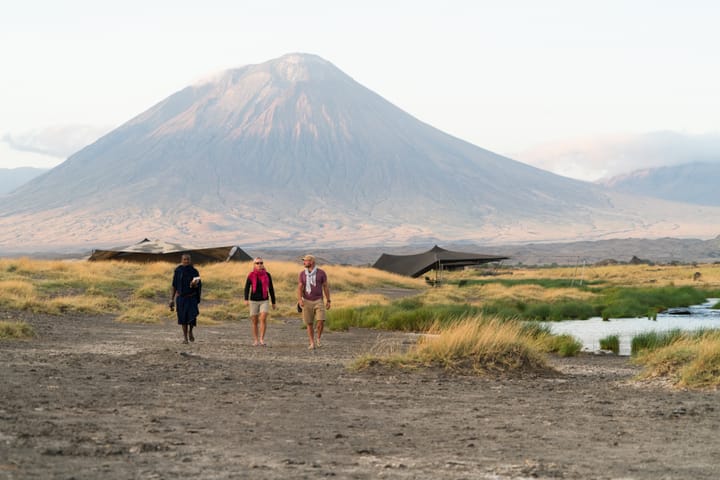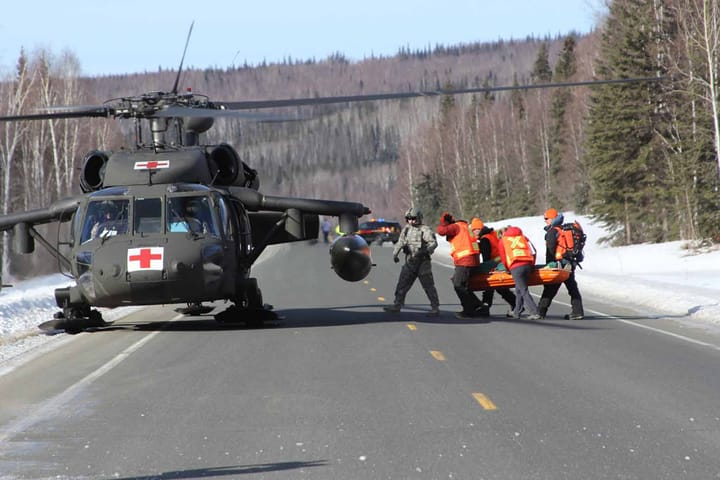Postpone, Don’t Cancel: COVID-19, Tourism and the Demise of the African Safari
As the world's press, focuses on Asia, the U.S. and Europe, Sarah Kingdom gives us another perspective on the Coronavirus from the heart of the African safari industry.

Fears of the coronavirus have crippled Africa’s safari industry. With most clients usually booking in January, February and March, the industry has seen a massive drop in bookings this year. Online booking company SafariBookings.com conducted a survey of 361 safari tour operators in early March and concluded that more than 86% of operators are experiencing a significant decline in bookings due to fears of the coronavirus (COVID-19) outbreak. The survey found that about a quarter of operators have experienced a staggering 75% decrease in bookings. It is a heavy blow for the industry, the people and the numerous wildlife reserves that rely on this revenue.
Countries across Africa have begun to initiate lockdowns as cases of COVID-19 rise above 1,100, according to the African Centre for Disease Control and Prevention. Many African countries have already shut their borders, closed schools and universities and barred large public gatherings. "This is one of the biggest health challenges Africa has faced in a generation", said Matshidiso Moeti, the World Health Organisation regional director for Africa. "Adopting approaches which are adaptable to the African context is key to containing the spread", she continued. Experts are concerned the continent will not be able to handle a surge in cases without the depth of medical facilities that are available in more economically developed countries.

"The impact is real and we feel it from all corners in the industry"
Many African countries are shutting both airports and land borders to keep people out. Hundreds of international flights have been cancelled, schools have closed and travellers from coronavirus-hit countries have been restricted or, in many cases, banned from visiting some African countries altogether. “The impact is real and we feel it from all corners in the industry," said Ann Muthui from Blue Mountain Trekking Safaris in Kenya. Many safari operators are frustrated that they are losing business despite offering travel to destinations that have few or, in the large majority of countries, zero cases of the coronavirus.

Zambia, according to stats released by the WHO on 16th March was coronavirus free and borders were open, with only self-isolation being requested of travellers from high-risk countries. But on the 19th March, two positive cases were confirmed and that very night Emirates cancelled all flights in and out of Zambia and Zimbabwe. Schools have been closed and sporting events have been cancelled. Safari bookings are drastically down and most lodges are predicting a grim season.
Mukambi Lodge in Kafue National Park, Zambia, said, "Yes the consequences of this pandemic are insurmountable....At the beginning of March our bookings came to a grinding halt. We are encouraging our guests with existing bookings to postpone instead of cancel and have given them 12 months to re-book. We do still have some local bookings, especially over Easter but if a travel ban is announced then we will be in even more trouble".
"We had a meeting with our staff this morning to of course inform them of the detrimental consequences the corona virus is having on the tourism sector worldwide.... it is by far the worst hit pillar of global economies. We also tried to reassure them that we will look after them as best we can in these unprecedented times. All our workers who do not have a permanent contract will stop tomorrow and all other staff will be put on a day shift. As soon as we have more information from the labour office about what to do with our permanent staff, we will act accordingly...until probably mid-May we are going to bunker down, cut costs wherever we can and focus on getting the lodge ready and looking its best for when we do have guests coming in again..."

Tusk & Mane Safaris in Zambia's Lower Zambezi National Park stated, "We have had a few rocks in our road over the last few years but the Corona stop on tourism and conservation will be the worst for us all. The consequences of it are devastating. Watching your staff, that had your back in the hard times, walk away without a job for the year is heartbreaking. The effect on our ecosystem, as conservation units have to slow progress, will endanger countless reserves and National Parks."
There is a sense of frustration amongst Ugandan safari operators because, as one operator put it, “the fear for this disease is causing a direct negative impact on our business, yet we have not a single case in Uganda.” More than 23% of Ugandan tour operators reported losing at least 75% of the business they normally received in February and March.

In Kenya, where the government has imposed a travel ban on foreigners from all countries that have reported any case of coronavirus, the safari industry is having a serious case of déjà vu. Fear surrounding coronavirus has panicked travellers and booking trends are looking similar to those experienced during the Ebola outbreak in West Africa.

“For every eight tourists, one permanent job is created in South Africa"
The World Travel Market Africa due to take place in Cape Town, South Africa, in April and Africa Travel Indaba scheduled for Durban in May have both been cancelled and foreign visitors have slowed to a trickle. The South African Minister of Tourism, Mmamoloko Kubayi-Ngubane, in a meeting with the tourism industry leaders, said: “The outbreak of the coronavirus in December 2019 has already affected the tourism industry very negatively and this will continue until the world finds a way of containing this virus.” She went on to add that researchers have predicted that the coronavirus could wipe out between $63-billion and $113-billion in worldwide airline revenues this year.
South Africa, which has the most cases in sub-Saharan Africa, has seen a huge surge in citizens wearing masks and gloves in public. The number of confirmed cases rose from 38 to 240 over the weekend, with numbers anticipated to rise sharply. The country has cancelled visas issued for 10,000 Chinese and Iranian citizens and visas would now be required for other high-risk countries that had been visa-free, including Italy and the United States. In reality, with all international SAA flights cancelled and most other airlines drastically slashing flights to the country, it is almost impossible to get a flight in or out. Additionally, just last night, South Africa's president, Cyril Ramaphosa, announced the country is going into lockdown at midnight on Thursday 26th March for three weeks. No one will be able to leave home except for groceries or medical and dental reasons. All beaches, gyms, parks, restaurants, bars are to be shut.
Referring to South Africa’s newly introduced rules banning incoming tourists from all high-risk countries, Jeremy Gardiner, director at Ninety One Asset Management, says tourism will feel a sizeable impact from the new travel restrictions. “For every eight tourists, one permanent job is created in South Africa… But it looks like some countries are going to go into lockdown – they are going to stop travelling. So what happens to our tourism?”

After the diamond industry, Botswana’s economy is powered by the tourism industry, with the sector hiring over 25 000 people, supporting a huge value chain of industries and bringing in large foreign income earnings. However, since the outbreak of COVID-19 bookings have slowly gone down in the tourism industry especially the safari and wilderness business.
"One of the worst things that has happened to us”
According to statistics from the Ugandan Ministry of Finance, with over 1.5 million tourists visiting the country in 2018/19, the tourism sector contributes $1.6b to Uganda’s earnings and employs 667,600 people. But with the coronavirus outbreak and the government’s resulting restrictions, including the quarantine of travellers from foreign countries, this is causing severe losses in the tourism sector. Hotels, tour companies and game parks are affected as foreign tourists postpone or cancel their travel to a country. Tour operators report losing as much as 75% of the business they normally received in February and March. “The phones have stopped ringing, the emails are not coming through, and those who booked are cancelling. This is just one of the worst things that has happened to us,” says Kelly Mac Tavish, Managing Director of Pearl of Africa Tours.
August statistics from last year showed Rwanda raked in $19.2 million from gorilla tourism alone and visitors to Rwanda had reached 1.7 million, according to Rwanda Development Board (RDB). Operators here are also saying numbers and bookings have taken a nosedive.
Nigeria, the continent’s most populous country, recorded the first case of the virus in sub-Saharan Africa about three weeks ago. It has just been announced that all religious actives in the country have been banned for a month and that it is closing airports to all incoming international flights for at least a month. This ban came a day after Africa’s busiest airport, Johannesburg in South Africa, blocked foreigners from disembarking and major African airlines, Ethiopian Airlines, South African Airlines and Air Mauritius all announced sweeping cancellations of international flights.
Tewolde GebreMariam, CEO of Ethiopian Airlines announced that twenty countries had barred Ethiopian Airlines resulting in a 30% decline in flights. “We have lost over $190 million,” Mr. Tewolde said. It is estimated that Ethiopian Airlines may loss up to $260 million as a result of flight disruptions caused as a result of covid-19.

"Mountain gorillas are likely susceptible to complications arising from the COVID-19 virus,”
President Mnangagwa of Zimbabwe has recently announced that all road borders are closed to all but essential traffic. Only returning residents and cargo will be allowed into the country. The Zimbabwean tourism industry is, therefore, another casualty of the coronavirus pandemic, with hotels and tour operators in the country’s major tourist attraction, Victoria Falls, recording close to 50% accommodation and activity cancellations. With room occupancy and activity bookings dropping by around 30%, hotels have been forced to respond by terminating contracts of scores of short term contract workers. The industry usually offers three to five months contracts to casual workers starting in March when bookings start picking up for the high season. However, many of these contract workers have lost their newly signed contracts before they even started work.
In an effort to protect its gorillas, Virunga National Park in the Democratic Republic of the Congo, home to about a third of the world's mountain gorillas, has shut its gates due to the Covid-19 crisis. "The park's temporary closure of mountain gorilla tourism is being undertaken as a precautionary measure and it's in line with the World Health Organisation's recommendation to restrict movement and limit social contact… It has been taken following advice from scientific experts indicating that primates, including mountain gorillas, are likely susceptible to complications arising from the COVID-19 virus," it said in a statement.

In Ethiopia so far nine people are identified COVID-19 positive. Ethiopian Airlines have now announced that is that in order to control the spread of COVID-19, the Ethiopian Government has decided to quarantine all arriving passengers entering Ethiopia for 14 days, at the passengers’ expense. “All passengers entering Ethiopia after 00:10 am of March 23 will be placed in a mandatory quarantine at the Ethiopian Skylight Hotel for 14 days. Additional hotel will be selected and advised in due course. Diplomats will be quarantined at their respective Embassies. The 14 days’ quarantine does not apply to transit passengers. Transit Passengers holding connecting flight booking will stay at the Ethiopian Skylight Hotel until their connecting flight.” Ethiopian Airlines have suspended flights to 30 countries, Prime Minister Abiy Ahmed of Ethiopia said. In an address today Prime Minister Abiy announced that all night clubs in the capital, Addis Ababa will be closed as of today. He also indicated that his government has discussed with religious leaders in the country to avoid crowded religious ceremonies or practices that could also spread the virus.
Tourism is one of the most important industries in Africa and contributed 8.5% (equivalent to $194.2 billion) of the continent’s GDP in 2018, according to the World Travel and Tourism Council, who says up to 50 million jobs could be lost because of the pandemic, while the travel sector could shrink up to 25% in 2020.
A definitive source of global travel statistics, the UN World Tourism Organisation have released a statement warning that it expects as much as a 3% decline in global tourism trade due to the outbreak. This translates into an estimated loss of up to $50-billion.

Social media has and continues to play a huge role in the issue. Today, we have access to more information, more advice and more up-to-date news than ever before. It is important though that this access to information be used as a tool to stay informed and not to provoke panic and fear.
"Postpone, don’t cancel."
To balance some of the misinformation found online, Dr Evert Bouwer from the Travel Clinic in Cape Town, South Africa, offers some advice and opinions on the ensuing Coronavirus outbreak. In response to the question as to whether the global panic around COVID-19 was justified, he has both a yes and no answer…
“Yes, because this is a novel new Coronavirus strain. We do not know much about it. We can base epidemiology and stats on only the numbers over the last 10 weeks. The longer and more data we collect, the more we understand the trend of the virus.”
And…
“No, because we now know that Covid 19 virus is moderately contagious (not as contagious as measles and Chickenpox), it’s not that virulent (not as dangerous as Ebola, but more dangerous than seasonal flu). The fatality rate is consistently between 2-3 %.” To extrapolate, IF you do contract the Coronavirus, you have a 97-98% chance of making a full recovery.

Dr Bouwer offers some statistics just to put any disease into perspective…
"Yellow Fever causes 30 000 deaths per year in Africa. Malaria causes 1200 deaths per day in Africa. Covid-19 latest stats report 3300 deaths in 2.5 months and whilst the situation is still fluid and the virus is likely still on the rise, according to the latest data, some countries are already showing a decrease in the percentage of infections."
So perhaps instead of giving up on your safari, on an experience of a lifetime, because of coronavirus, make a fully informed decision by speaking directly to your safari tour operator, accommodation and airlines…Africa needs you… postpone, don’t cancel."






Comments ()